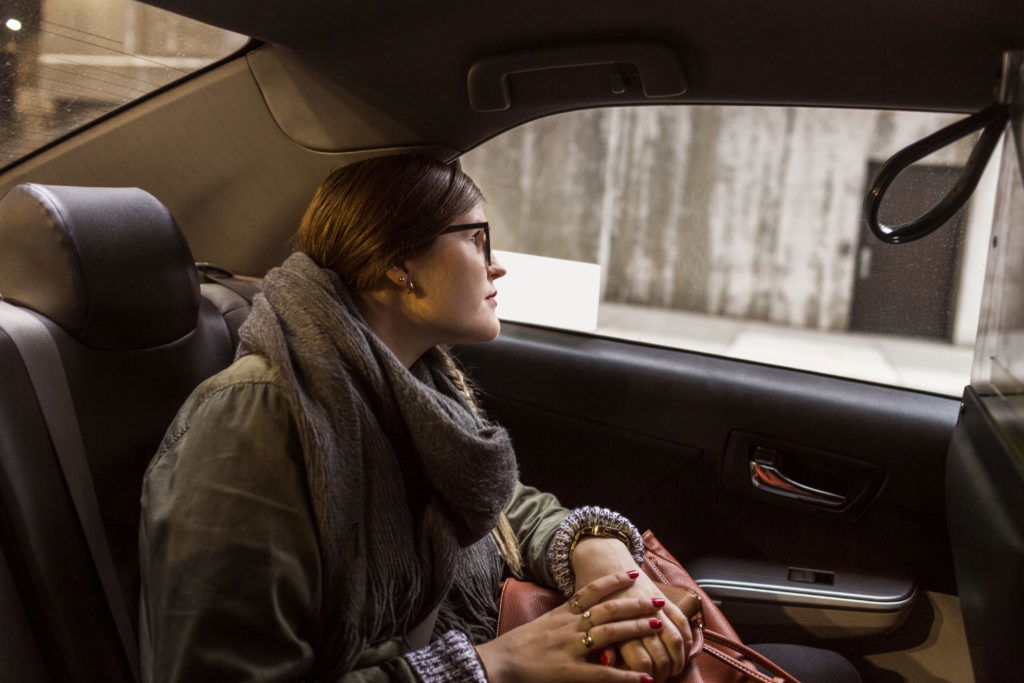
April 15, 2025
What is Sami’s Law?
Many New Jersey residents are familiar with the story of Samantha (Sami) Josephson’s murder in 2019. The University of South Carolina student climbed into a vehicle she thought was her Uber ride. She was stabbed to death shortly after that. Her body was found in the woods 65 miles from Columbia. Her murderer, Nathaniel Rowland, was convicted of her death on July 27, 2021, and sentenced to life in prison.
In January 2023, the federal government enacted Sami’s Law, previously adopted in New Jersey in June 2019, to enhance nationwide rideshare safety following the tragic death of Samantha Josephson. New Jersey Governor Phil Murphy signed a state law named for Samantha that requires illuminated signs and digital barcodes on rideshare vehicles. It sets up a digital access system allowing passengers to verify their rideshare vehicle and driver in advance of it arriving to pick them up. The federal adoption of Sami’s Law means these crucial safety measures now apply across the United States, significantly improving the security and reliability of rideshare services.
Dubbed Sami’s Law, the legislation requires instant verification that the driver is legitimate. The law also hopes to end fake Lyft and Uber signage in cars and promote more effective background checks for drivers.
While there is a good level of protection in place for rideshare passengers, none of them address being able to verify if the driver is legitimate. All rideshare trips are GPS-tracked. Drivers must have a background check, and riders are told the make, model, license plate number, and driver’s name before they arrive. However, this does not consider fake drivers using a real driver’s name and vehicle or a driver that says they are substituting for the actual driver because they are out sick.
Every day, thousands of people hail a rideshare vehicle and put their trust in the drivers to get them where they want to go, safely and on time. If someone abuses the system and security features, they need to be tightened to keep riders safe. New Jersey took the lead to make ridesharing safer for everyone by introducing Sami’s Law.
Sami’s Law Says
Sami’s law mandates that rideshare companies issue additional identification materials for drivers to assist passengers to correctly ID their vehicles. Rideshare companies must issue two markers to every driver. The markers must be displayed on the rear window and the front windshield area. Rideshare companies must also create and give every driver two copies of a machine-readable barcode. The barcode is in place for passengers to scan and confirm the vehicle’s identity. Rideshare companies must also issue two credential placards on the passenger side and driver’s side rear windows that display the driver’s license plate number, name, and picture.
According to New Jersey law, rideshare drivers that do not use the added, required ID to their vehicles can be fined $250. Rideshare companies that do not comply with these provisions face having their New Jersey permit to operate in the state revoked or suspended.
Rideshare services need to be safe for the passenger and driver. The more identification tools introduced, the better riders can ID their driver and the vehicle they are about to get into. Safety is paramount.
Talk to an Experienced New Jersey Rideshare Attorney Now!
If you have been victimized by either an Uber or Lyft driver, immediately contact one of the dedicated Rideshare Lawyers at the Todd J. Leonard Law Firm. We are a five-star rated law firm, recovering a total of more than $100 million on behalf of our clients. We will do our best to hold the negligent driver fully accountable for their actions and get you the justice you deserve. To learn more and to schedule a FREE consultation, give us a call today at 973-920-7900. You can also connect with us through our online form. There is never a fee unless we win your case. We have two conveniently located offices in Denville and Morristown, New Jersey.


